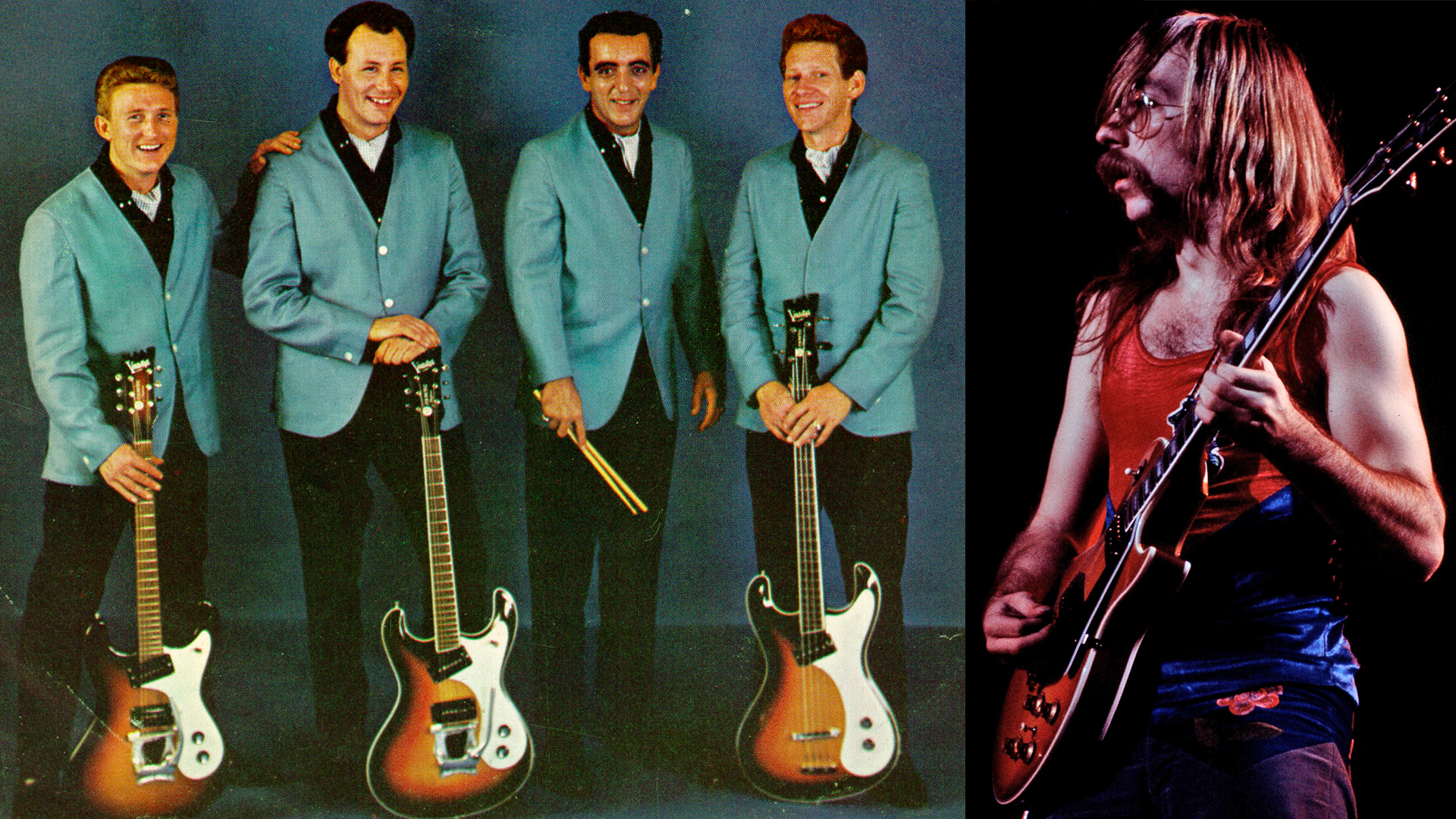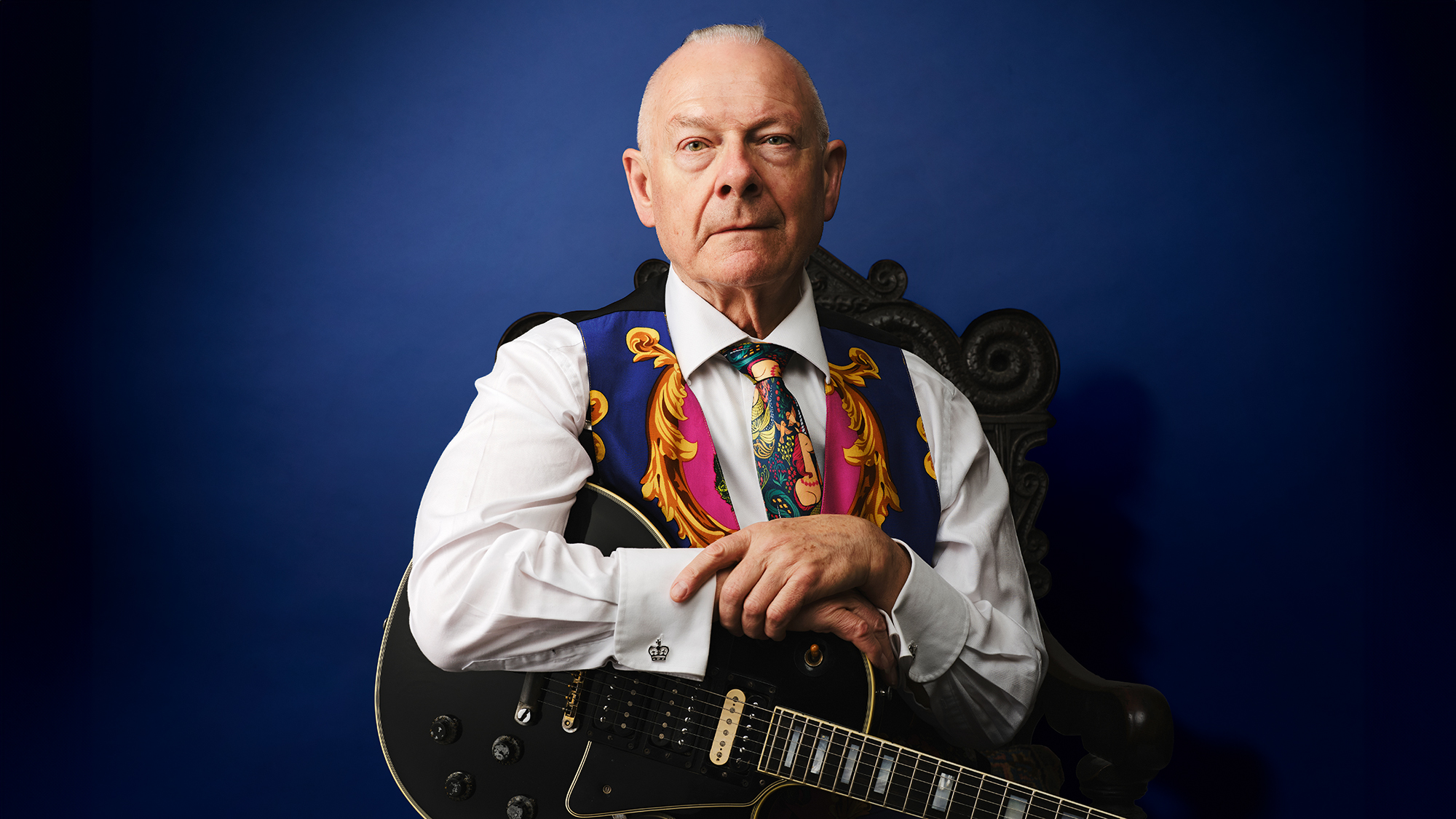“Their fundamental reason for existence was to interpret melodies on electric guitar. What a concept!” Steely Dan/Doobie Brothers vet Jeff "Skunk" Baxter on how the Ventures revolutionized guitar rock and become one of his top influences

All the latest guitar news, interviews, lessons, reviews, deals and more, direct to your inbox!
You are now subscribed
Your newsletter sign-up was successful
Jeff “Skunk” Baxter spent a portion of his childhood in Mexico City. He calls those years “a blessing” for the wide variety of music he was exposed to, which spanned everything from Django Reinhardt and mariachi bands to Frank Sinatra and early American rock and roll.
“I was just a kid so I didn’t really understand the diversity of everything I heard or how important it would be,” he says. “But little by little, it all became my musical encyclopedia that I would draw from.”
He recalls his time as a studio musician in L.A. “We’d be doing a Frito-Lay commercial, so we’d have to be able to play something in a mariachi style,” he says. “Sometimes the music would be written out, but other times a producer would look at you and go, ‘What do you got?’ Let’s just say, all that music I heard as a kid came in handy.”
Asked to name his five biggest guitar influences, Baxter says, “That’s a hard one, because there’s so many players I admire for one reason or another. I think what attracted me to these guitarists initially, and why they became important to me through the years, was how they seemed to incorporate all the important aspects of music.
"They played brilliant melodies. They had a quality about them that seemed somehow familiar, even if you couldn’t always place it. And they always kept it interesting, which is a kind of magic, really. They do what the best musicians do: they create an expectation, then fulfill it.”
Howard Roberts
“When we were in Mexico, my dad had a friend who was a disc jockey in Washington, and he’d send him records. Two of them were by Howard Roberts – Color Him Funky and H.R. is a Dirty Guitar Player. I put those records on and was absolutely blown away by Howard’s playing.
All the latest guitar news, interviews, lessons, reviews, deals and more, direct to your inbox!
“Musicians’ styles are a reflection of their personalities. Something I noticed even as a young guitar player was how Howard Roberts had an almost conversational approach to playing the instrument. He didn't try to knock you over immediately. He engaged you. A good conversationalist will engage you and draw you in before presenting an idea or a concept or initiating a discussion.
"That's what struck me about Howard as I was trying to work out the solos and parts on his records. His approach was friendly and inviting, as if he was saying, ‘Come on in. This is the place for you.’
“That’s very important, I think: Unlike a composer like Stravinsky, and some of Bach’s works like ‘Toccata and Fugue in D Minor – music that was not meant to be inviting – Howard’s playing was very joyous. All of this made what he did very accessible, especially to a young player like myself at the time.
"Instead of having to climb this extremely steep ladder, the pathway to one of Howard’s solos was like walking through a door to a comfortable living room.
“It’s hard to pick just one track of his, but a song called ‘Dirty Old Bossa Nova’ comes to mind. That’s always been favorite among Howard Roberts fans.”
Bob Bogle
“Bob Bogle was the lead guitarist for the Ventures, and he was a big influence on me. When I heard the Ventures’ first album, I was completely impressed by their incredible melodies. I first heard them on the radio in Mexico City — it was their song ‘Walk, Don’t Run.’ Right away, it spoke to me in a way that made perfect sense. I was completely swept away.
"Here was a guitar band playing instrumental music, and their sole focus was playing the melody of a song and interpreting it for electric guitar. For a young guitar player, that was pretty straight ahead, and it encouraged me — again, because I could relate to it. Listening to them offered me invaluable lessons as I was starting to develop my style.
“Later on, not only did I get to become friends with the Ventures but I got to play with them and produce records for them. We had long, in-depth talks about melody, melody and more melody. Understanding and being comfortable with learning and interpreting melody — I think was the biggest lesson that I took away from listening to the Ventures.
"Of course, there was brilliant guitar playing. Bob Bogle and Nokie Edwards were fantastic players, and they would stretch out a little bit here and there. And I have to also mention Don Wilson, the rhythm player in the band, who was outstanding.
But the foundation of the band, and their fundamental reason for existence, was taking melodies and interpreting them on electric guitar. What a concept!”
Charlie Christian
“I heard a Charlie Christian record that impressed me as a kid, but I don’t recall what it was called. I don’t even know if we had the album jacket — the disc was just in a pile of records. But I did listen to it, and it made a big impression on me.
“A lot of it had to do with his phrasing, which was quite unlike anything else I’d heard at the time. Most melodies had a pretty much same structured format. They would begin and end in two-bar or four-bar phrases. Sometimes it was one-bar phrases, but the point is, they would begin and end in very structured ways — two bars then stop, play some more then stop, play some more…
"You get the idea. Charlie Christian didn't do that. He didn’t seem to be bound by that kind of structure. The melodies in his playing were very free. They floated in their own universe.”
Django Reinhardt
“I’m trying to search for the correct word to describe Django Reinhardt. I don’t want to sound too intellectual here, because at my age I have the vocabulary to describe him in a way that I probably couldn’t when I was 11 years old. What comes to mind is ‘fearless.’ ‘Urgent’ is another word.
"There was an immediacy to his playing that I found very compelling. He didn’t seem to be too worried about anything in terms of how his music was going to be accepted. He had something to say, and he was going to say it.
“One could draw many conclusions about the fact that he was disabled — two of the fingers on his fretting hand were fused together. Somebody who could play so beautifully with that kind of limitation was certainly fearless. Nothing was going to stop him.
"But I didn’t know anything about that when I first heard him. I just loved what he did and responded to it. Of course, knowing the facts about him and what he went through impressed me even more — I was blown away. A wonderful player who influenced me, for sure.”
Speedy West
“I remember seeing Speedy West on The Lawrence Welk Show. I’ll be honest: 95 percent of that show was boring as hell, but there would always be that one segment that made you go, ‘Wait a minute. Look at that. Listen to what they’re playing!’ That’s what happened when I saw Speedy West.
“I don’t think I’d seen anybody play pedal steel before, or at least I never saw anybody that good before. He really nurtured the seed that eventually made me want to play pedal steel myself. At first I just thought, ‘Wow, that guy looks great, and he seems so cool.’
"Then I listened to some of his recordings – this was when we moved back to the States from Mexico, so I had more access to records. Speedy West’s playing really impressed me. What he did was so different from everybody else – that sound was so lyrical. He was the guy who got me thinking, ‘Pedal steel guitar… Now there’s an instrument I need to explore.’
"And I have to also mention Santo & Johnny, for their big hit ‘Sleepwalk.’ Who couldn’t love the sound of that?”

Joe is a freelance journalist who has, over the past few decades, interviewed hundreds of guitarists for Guitar World, Guitar Player, MusicRadar and Classic Rock. He is also a former editor of Guitar World, contributing writer for Guitar Aficionado and VP of A&R for Island Records. He’s an enthusiastic guitarist, but he’s nowhere near the likes of the people he interviews. Surprisingly, his skills are more suited to the drums. If you need a drummer for your Beatles tribute band, look him up.



